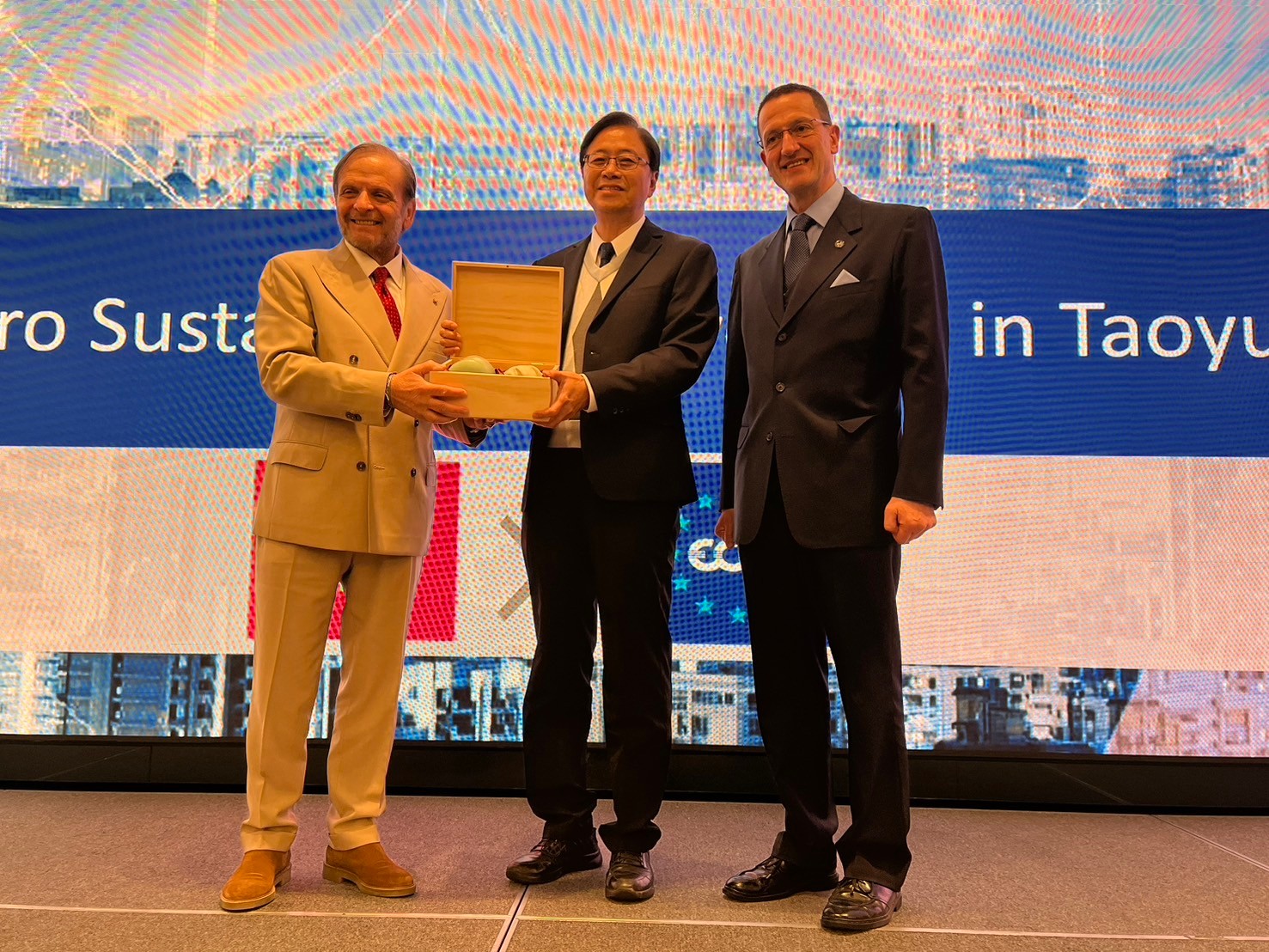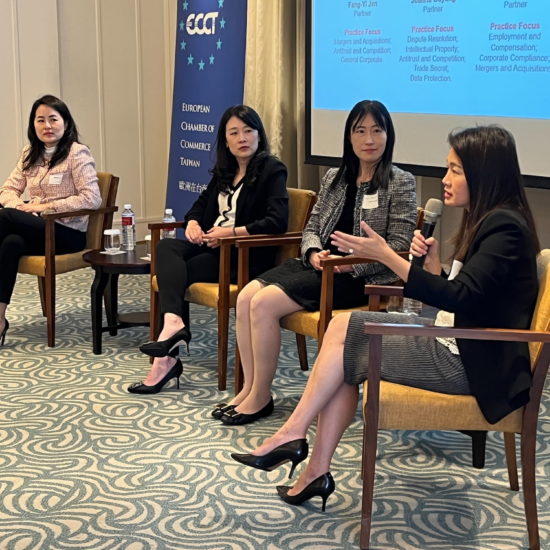Lunch with Taoyuan Mayor Chang

The ECCT hosted a Premium Event lunch with Chang San-Cheng (張善政), Mayor of the Taoyuan City Government and senior officials from the city government, who were seated at different tables among members at the event. At the event the mayor gave a short speech after which Chang Cheng (張誠), Director-General of the city’s Department of Economic Development gave a presentation. The lunch was followed by a tour of the Taiwan High Speed Rail Museum.
In his remarks, Mayor Chang noted that Taoyuan has the largest industrial output among municipalities in Taiwan, which reached NT$3.6 trillion in 2023. He stressed the city’s advantages of being the location of Taiwan’s largest international airport and logistics hub and home to Taiwan’s youngest average population.
Taoyuan has a population of 2.3 million, which has increased by 270,000 over the past 10 years. In addition, Taoyuan has the highest crude birth rate of 7.71% among Taiwan’s six largest municipalities. Every day, 2.7 million people commute within the city, and 500,000 people commute between districts. Taoyuan has 12,000 factories, the highest number among Taiwan’s six special municipalities. The city’s universities collectively add 25,000 new university graduates every year.
In his presentation, DG Chang focused on the city’s plans to promote net zero sustainability and smart city initiatives. Among the city’s smart city initiatives, the city has implemented a lung cancer screening programme that uses image recognition and big data collection and analysis to screen patients. It also has an advanced system to monitor water quality. In addition, the city has created a digital twin city to provide an immersive experience to reveal how future planned city developments will look. The city is also using AI to monitor and time traffic signals in order to optimise traffic flow. The city has set up an “Innovative Seed Team”, comprised of 240 civil servants, arranged in 32 sub-groups, working on ways to use smart technology to improve government services.
In terms of net zero by 2050 initiatives, Taoyuan has an interim plan to cut emissions by half by 2030. It will do so first by phasing out the use of coal in power generation by 2030 and increasing the installation and use of renewable energy in power supply, industry and transport. According to Chang, the city has already installed 968MW of solar power. It is also increasing the amount of energy storage capacity. The Taoyuan Aerotropolis will include a 95-hectare low carbon zone.
In the Q&A session, in reply to a question on progress on the Aerotropolis, Mayor Chang said the process to expand Taoyuan Airport had been going on for more than a decade. The most time-consuming aspect has been the process to rezone land. This is because the land needed for the expansion of the Aerotropolis required relocating people living in the area. The government had committed to finding and completing new land and housing for these residents before beginning to develop the new land, all of which takes time. The good news is that results should be seen over the next few years. The airport’s terminal 3 is already under construction. According to Chang, some new homes for relocating residents should be completed this year. This will allow development of the Aerotropolis to pick up. The mayor said he expects terminal 3 to be ready by 2026 and the third runway to be ready by 2030.
In terms of promoting net zero in industry, Mayor Chang said the city’s strategy was to encourage industry to upgrade to smart production technology and solutions, which would entail adopting more energy and resource-efficient solutions. In this regard he said he welcomed cooperation with European firms that can offer the appropriate leading edge technology and solutions to local firms.
On a question about the metro system, Mayor Chang said that work is already underway on the city’s green metro line while other planned lines have already received approval from the Executive Yuan, aimed at increasing the metro network to a much wider area of Taoyuan and connecting the city to the existing metro lines in Taoyuan (the airport MRT) as well as those in New Taipei City.
In addition to Mayor Chang and DG Chang the following city government officials also attended the lunch: Chang Hsin-Fu, Director-General, Department of Transportation (交通局局長張新福); Liu I-Lien, Director-General, Department of Public Health (衛生局局長劉宜廉); Chen Shih-Wei, Director-General, Department of Environmental Protection (環保局局長陳世偉); Hou Chia-Ling, Director-General, Department of Youth Affairs (青年事務局局長侯佳齡); Liu Ching-Feng, Director-General, Department of Rapid Transit Systems (捷運工程局局長劉慶豐); YU Chien-Kuo, Director-General, Secretariat (秘書處處長于建國) and Yen Chun-Ju, Deputy Chairperson, Smart City and Community Development Commission (慧城鄉發展委員會副主任委員閻俊如).

